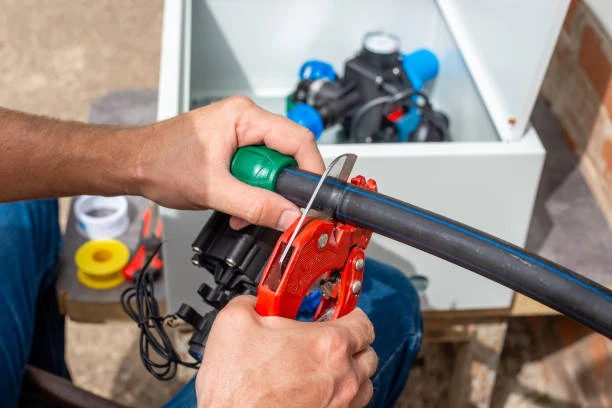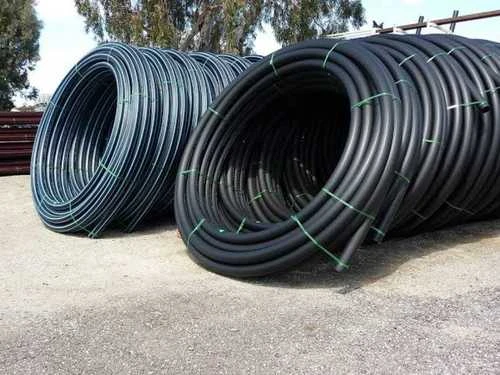The Plastic Pipe Institute (PPI) has reached a significant milestone in its history—celebrating 70 years of innovation, leadership, and advancements in the pipe industry. Founded in 1954, the PPI has grown to become a leading voice for the plastics pipe industry, advocating for the benefits of plastic piping materials in a wide range of applications, including water systems, gas distribution, sewage systems, and more.
The Birth of the Plastic Pipe Institute
The Origins of PPI: A Vision for Innovation
In the early 1950s, the U.S. pipe industry was dominated by traditional materials such as cast iron, steel, and concrete. However, a group of forward-thinking engineers, manufacturers, and industry professionals recognized the potential of plastics to revolutionize pipe systems. The Plastics Pipe Institute was established to promote the use of plastic piping materials and to drive research and development within the sector.
The Institute’s founding members sought to address the growing demand for more efficient, cost-effective, and durable piping solutions. Plastic pipes offered several advantages over traditional materials, including lightweight construction, easier installation, lower maintenance, and resistance to corrosion.
Plastic Pipe Institute’s Contributions to the Industry
Advancing Technology and Standards
Over the past 70 years, the Plastics Pipe Institute has been a key player in advancing the technology and standards for plastic pipe materials. Through ongoing research, testing, and collaboration with regulatory bodies, the PPI has contributed to the development of industry standards for materials like PVC, HDPE, and PP (polypropylene). These materials are now widely used in applications such as potable water, wastewater management, drainage systems, and gas distribution.
One of the PPI’s most significant achievements has been the establishment of material specifications and performance guidelines for plastic pipes. These guidelines ensure that manufacturers produce high-quality, reliable products that meet the rigorous demands of modern infrastructure projects. The Plastics Pipe Institute has also worked to raise awareness about the environmental benefits of plastic pipes, including their energy efficiency, recyclability, and long service life.
Promoting Sustainability in the Pipe Industry
Sustainability has become a central focus of the Plastics Pipe Institute in recent years, as the world increasingly turns to greener solutions in construction and infrastructure. Plastic pipes, especially those made from materials like HDPE, are known for their low carbon footprint compared to traditional piping materials.
Expanding Global Influence and Partnerships
As the global construction industry continues to evolve, the Plastics Pipe Institute has expanded its reach beyond the U.S. and now works with partners around the world. The organization has formed partnerships with international standards organizations, regulators, and manufacturers to promote the global use of plastic pipes.
By promoting the versatility and efficiency of plastic pipes, the Plastics Pipe Institute has contributed to the expansion of the global plumbing and construction industries.

The Benefits of Plastic Pipe
Durability and Longevity
One of the primary reasons plastic pipes have gained widespread popularity is their impressive durability and longevity. Unlike traditional materials, such as metal or concrete, plastic pipes are resistant to corrosion, which significantly extends their lifespan. PVC, HDPE, and other plastic materials are also less prone to cracking, pitting, and scaling, which are common issues with metal pipes.
Plastic pipes can withstand harsh environmental conditions, including extreme temperatures and exposure to chemicals. This makes them ideal for use in a variety of industries, including water distribution, sewage systems, and industrial pipelines.
Cost-Effectiveness and Efficiency
Another advantage of plastic pipes is their cost-effectiveness. Plastic pipes are lighter than traditional pipes, making them easier and cheaper to transport and install. This reduces labor and material costs associated with infrastructure projects.
The Plastics Pipe Institute has worked tirelessly to highlight the economic benefits of plastic pipes in comparison to traditional materials, demonstrating how they can reduce overall project costs while improving performance.
Environmental Benefits
Plastic pipes have a smaller carbon footprint than many other piping materials. The manufacturing process for plastic pipes uses less energy, and the materials are lightweight, reducing transportation costs and emissions. Additionally, plastic pipes are highly recyclable, further contributing to their environmental benefits.
The Plastics Pipe Institute continues to advocate for the use of sustainable, recyclable materials in infrastructure projects.
Looking to the Future: The Next 70 Years
Innovations in Plastic Pipe Materials and Applications
As the Plastics Pipe Institute looks to the future, innovation will remain at the heart of its mission. New materials and technologies are constantly emerging, and the PPI is committed to staying at the forefront of these developments. From the continued improvement of HDPE and PVC pipes to the exploration of next-generation composite materials, the PPI will play a key role in shaping the future of the pipe industry.
As urbanization continues and infrastructure needs expand worldwide, the demand for efficient, durable, and sustainable piping systems will only grow.
Strengthening Industry Collaboration
In the next 70 years, the Plastics Pipe Institute aims to further strengthen its collaboration with industry stakeholders, including manufacturers, government agencies, and environmental organizations.
Conclusion in Plastic Pipe Institute
As the Plastics Pipe Institute celebrates its 70th anniversary, it reflects on seven decades of innovation, leadership, and progress in the pipe industry. Moving forward, the PPI will continue to drive innovation, promote sustainability, and support the global adoption of plastic pipes. The next 70 years promise to be just as transformative as the first.
Frequently Asked Questions (FAQs)
1. What is the Plastics Pipe Institute (PPI)?
The PPI is an organization that promotes the use of plastic pipes and advocates for the benefits of plastic materials in various industries, including water distribution, gas lines, and sewage systems.
2. Why are plastic pipes better than traditional piping materials?
Plastic pipes are lightweight, durable, corrosion-resistant, cost-effective, and environmentally friendly, making them a preferred choice over traditional materials like metal and concrete.
3. What materials are plastic pipes made from?
Manufacturers primarily make plastic pipes from materials such as PVC (Polyvinyl Chloride), HDPE (High-Density Polyethylene), and PP (Polypropylene), with each material offering unique advantages in different applications.
4. How does the Plastics Pipe Institute contribute to sustainability?
The PPI promotes the use of recyclable materials, energy-efficient manufacturing processes, and long-lasting pipe solutions that reduce waste, maintenance, and environmental impact.
5. What is the future outlook for plastic pipes?
As infrastructure needs grow globally, the demand for plastic pipes is expected to rise as manufacturers focus on their sustainability, cost-effectiveness, and durability. Innovations in materials and technology will continue to shape the future of plastic pipes.


















